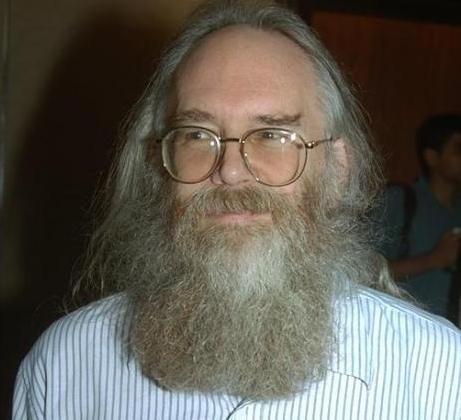Jonathan B. Postel Service Award > A Ten Year Tribute to Jon Postel: An Internet Visionary
A Ten Year Tribute to Jon Postel:
An Internet Visionary

The 16th of October 2008 marked ten years since the death of Jon Postel. In honour of Jon, Internet Society gathered reflections and quotes on his life, his work, and his legacy.
Jonathan Bruce Postel was born on 6 August 1943. When he died – tragically young at 55 – his mourners launched a squadron of paper planes soaring in honour of the man they saw as a technical genius; a man who quietly did what was necessary in support of the Internet to help ensure its advancement for good.
“Jon was someone who dedicated his efforts to advancing the Internet,” said Lynn St Amour. “He took on roles of great responsibility. While some might say he held power, he didn’t see it or treat it this way and he always exercised his responsibilities with utmost care, openness, and integrity.”
Jon Postel was not so well known by the general public, yet in his appearance – bushy grey beard, long hair, and sandals – he was the most recognisable archetype of an Internet pioneer. Beyond appearances though, his vision, determination, and efforts were absolutely crucial in creating and shaping the Internet we now all use. He was the real thing.
He was known as a modest, private man. Indeed the biography on his own web site contained only eight sentences, barely hinting at the significance of his many roles and contributions. He studied at UCLA, ultimately gaining his Ph.D. in computer science in 1974. Those studies led to his early involvement in the ARPANET project, the packet switching network from which the modern Internet evolved.
Jon Postel’s technical influence can be seen at the very heart of many of the protocols which make the Internet work: TCP/IP determines the way data is moved through a network; SMTP allows us to send emails; and DNS, the Domain Name Service, help people make sense of the Internet. He contributed to these and many other technologies.
Jon was the network’s Boswell, but it was his devotion to quality and his remarkable mix of technical and editing skills that permeate many of the more monumental RFCs that dealt with what we now consider the TCP/IP standards. Many bad design decisions were re-worked thanks to Jon’s stubborn determination that we all get it “right” – as the editor, he simply would not let something go out that didn’t meet his personal quality filter. There were times when we moaned and complained, hollered and harangued, but in the end, most of the time, Jon was right and we knew it.
And someone had to keep track of all the information that erupted with volcanic force from the intensity of the debates and discussions and endless invention that has continued unabated for 30 years. That someone was Jonathan B. Postel, our Internet Assigned Numbers Authority, friend, engineer, confidant, leader, icon, and now, first of the giants to depart from our midst.”
“He was our rock,” said Vint Cerf, shortly after Jon’s death. He was “the foundation on which our every web search and e-mail was built.”
The standards and practices of the Internet’s infrastructure are contained in the Request For Comment (RFC) document series. For almost three decades, Jon Postel was RFC Editor, shepherding drafts through the open consensus processes that characterise Internet development efforts.
For many, Jon’s greatest contribution to the Internet was his role in creating the Internet Assigned Numbers Authority (IANA). This task – which he volunteered to take on and which he at first performed manually – provided the stability the Internet’s numbering and protocol management systems needed for it to grow and scale. Jon performed this role from its inception until his death. To many people, he was the IANA. Again in the words of Vint Cerf, he kept “track of all the protocols, the identifiers, networks and addresses and ultimately the names of all the things in the networked universe”.
For the Internet Society, Jon holds another important place in history. He was one of Internet Society’s founders, the first individual member, and he served as a Trustee from 1993-98. One of his most famous statements was “be conservative in what you do, be liberal in what you accept from others”. Although its original context was as a “robustness rule” for TCP implementations, its sentiment has come to be seen as a central tenet of Internet development.
Each year, Internet Society salutes Jon’s legacy by making the Jonathan B. Postel Service Award to an individual who has made outstanding contributions in service to the data communications community.
Jon Postel, in the words of those who knew him:
Information in Memory of Jon Postel:
- Internet Society Press Release – Article from Los Angeles Times (17 October 1998)
- Article from The New York Times (October 1998)
- Photo Gallery
- Jon Postel Center (external source, hosted by Information Sciences Institute, The University of Southern California)
(Editor’s note: The first three links point to the archived content from previous website versions)